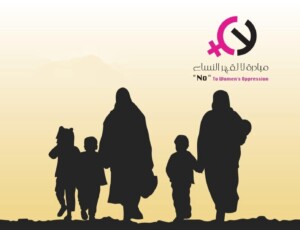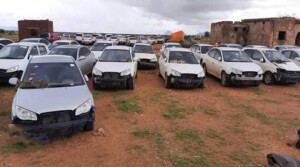‘Follow the money that funds atrocities in Sudan’: The Sentry
The US-based activist think-tank Enough Project launched The Sentry this week, a new project aimed at targeting the financers of the armed conflicts in East Africa.
In collaboration with supporting partners C4ADS and Not On Our Watch (NOOW), The Sentry “seeks to dismantle the networks of perpetrators, facilitators, and enablers who fund and profit from Africa’s deadliest conflicts.
The US-based activist think-tank Enough Project launched The Sentry this week, a new project aimed at targeting the financers of the armed conflicts in East Africa.
In collaboration with supporting partners C4ADS and Not On Our Watch (NOOW), The Sentry “seeks to dismantle the networks of perpetrators, facilitators, and enablers who fund and profit from Africa’s deadliest conflicts.
“Countries such as Sudan, South Sudan, Somalia, the Central African Republic, and the Democratic Republic of Congo are often referred to as failed states, but in reality, they should be considered hijacked states,” The Sentry explains on its new website.
“Political, military, and commercial elites in these countries – often collaborating with neighbours – control and run the state and its institutions, use their power to transfer a large fraction of society’s resources to enrich themselves, and use brute force to remain in power. In these states, high-level corruption linked to violence is not anomalous; it constitutes the actual system of governance.”
The new project’s ultimate objective is to alter the incentives for funding or profiting from violence and mass atrocities, by investigating how conflict is financed, in partnership with local and international civil society organisations, journalists, and governments. With the outcomes, The Sentry hopes to engage civil society and media, support regulatory action and prosecutions, and to provide policymakers with the information they require to take effective action to impose broader accountability measures and enhance the peace efforts.
In its Brief on Sudan, The Sentry explains how Khartoum sustains itself and its activities through its control of the economy. “While pressure from sanctions and arrest warrants has severed most direct economic links with the West, the regime has maintained economic relationships with much of the Gulf, allowing Sudan to preserve its economic footholds,” the Brief reads.
The regime’s financial holdings, which encompass networks of companies, contracts, and other financial interests, directly and indirectly support its vast national security apparatus and keep core elites and factions bought into the system.
These networks also, however, represent a key source of vulnerability for the regime in that they explicitly rely on legitimate global financial infrastructure, where international policy, enforcement and regulatory efforts are likely to have the most enduring impact.
“While placing pressure on individual actors in Sudan might be difficult,” The Sentry states, “exerting pressure on the international and domestic networks of revenue generation that are linked to the regime has the potential to raise the price of conflict to an untenable level. The individual perpetrators of conflict might be relatively sequestered from international pressure, but their economic networks that indirectly fund conflict are not.”











 and then
and then